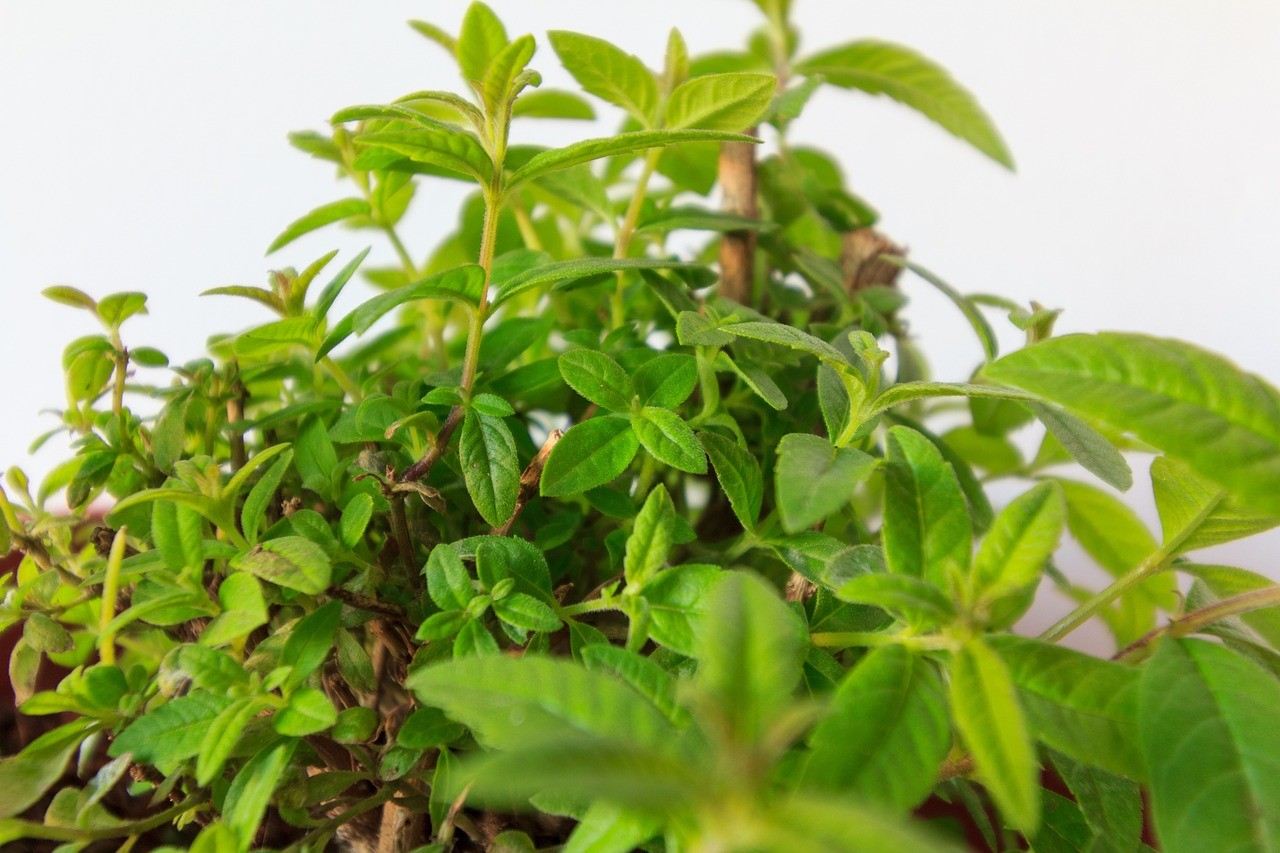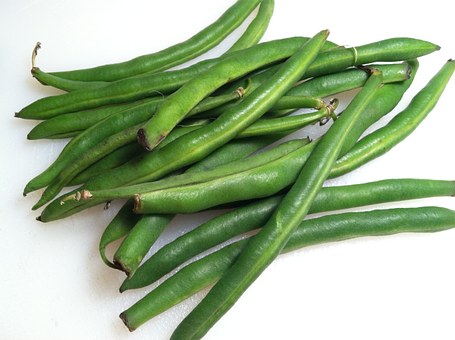Growing Lemon Verbena for Fresh, Fragrant Leaves at Home

Growing Lemon Verbena
Growing Lemon Verbena brings the bright, lemony zing of fresh herbs directly to your garden or balcony. Sow this fragrant herb in sunny, well-drained soil, water it consistently, and pinch back regularly to boost healthy foliage. With minimal effort, your own lemon verbena plant rewards you generously with aromatic leaves perfect for teas, desserts, and cocktails—encouraging you to venture deeper into herbal gardening.
Cheatsheet: At-Home Lemon Verbena Leaf Success
🌱 Start Strong: Planting
- Starter plant or fresh cuttings
- Full sun (6+ hours)
- Plant after frost, soil ≥ 60°F/16°C
- Well-drained, loamy soil; pH 6.5–7.0
- Space plants 18" (45cm) apart
💧 Water & Nourish
- Water when top inch (2.5cm) dries
- Feed monthly with organic liquid fertilizer
- Avoid soggy roots; use pots with good drainage
✂️ Prune for Growth
- Pinch tips to shape bushy plant
- Harvest leaves often for best aroma
- Trim 1/3 of plant in late summer to promote new shoots
☀️ Indoors/Outdoors
- Best outdoors in USDA zones 9–11 (survives to 20°F/-6°C); overwinter indoors elsewhere
- Grow in large pot (>12"/30cm) for easy mobility
- Indoors: Brightest window, rotate pot for even growth
🦠 Health & Wellness
- High antioxidant activity; supports digestion
- Fresh leaves: tea, desserts, savory dishes
🛠️ Tools and Products You’ll Need
- Quality pruners
- Plant pot with drainage
- Organic potting mix
- Liquid fertilizer
- Grow light (if indoors, low light)
⚡ Fast Facts
- 60+ leaves yield per plant monthly with regular picking
- Repels mosquitoes naturally
- 90%+ of dried leaves retain aroma for up to a year if stored airtight
Why Growing Lemon Verbena is Worth the Effort
I still vividly remember the first time I brushed my fingers across a lemon verbena leaf; a vibrant burst of citrus fragrance lingered around my fingertips, stopping me in my tracks. Since then, growing lemon verbena (Aloysia citrodora) continues as a joyful constant in my garden beds and containers—each season renewing that sweet and aromatic nostalgia.
This woody, perennial herb originates from South America, thriving effortlessly in warmer climates but gracefully adapting to cooler environments with proper care. Beyond just its aromatic charm, lemon verbena serves wonderfully for teas, baked goods, cocktails, soaps, and even potpourris.
Where and How to Plant Lemon Verbena
If you're tempted by the thought of fresh lemon-scented delicacies, choosing the right spot proves essential. Lemon verbena demands plenty of sunlight, ideally a minimum of six hours daily to prevent legginess and leaf drop.
I personally prefer container gardening because, here in temperate zones, our winters reach below freezing (32°F / 0°C). Growing lemon verbena in pots lets me move the plants indoors easily when colder weather arrives, ensuring their survival year-round.
Soil selection matters, too. Ensure excellent drainage by mixing standard potting soil with generous amounts of perlite or coarse sand—excessively moist roots are lemon verbena’s mortal enemy.
Caring for Your Lemon Verbena Plant
Good news—the plant’s maintenance stays simple. Pruning regularly encourages new growth and flavorful leaves.
- Prune lightly throughout summer, pinching away gangly growth.
- Perform a heavier trim at winter's end to spur fresh sprouting.
In hotter months, water generously but let the top inch (2.5 cm) of soil dry before watering again, avoiding waterlogged roots. During winter's dormancy, reduce watering significantly, only every few weeks, keeping soil barely moist.
Apply fertilizer sparingly once monthly during growing seasons, preferably organic options like diluted fish emulsion or compost tea. Minerals from these sources sustain thriving foliage without chemical overload.
Troubleshooting Common Lemon Verbena Woes
Even a seasoned gardener inevitably encounters hiccups. Yellowing leaves typically indicate overly wet roots or insufficient sunlight. Adjusting your watering approach and ensuring ample sun exposure usually restores the plant quickly.
Pest-wise, lemon verbena occasionally attracts spider mites, whiteflies, or aphids. Address minor infestations using insecticidal soap sprays or neem oil applications, gently and effectively.
Harvesting and Using Lemon Verbena
Timing your harvests enhances both plant health and leaf quality. Early morning, after the dew dries yet before intense midday heat, provides peak flavor—trust me, your morning-time harvest will sparkle with fragrance.
Use fresh-picked leaves immediately, infused into hot water for calming evening tea, added in lemonade pitchers, or chopped and thrown into fruit salad bowls. Dry extra leaves by hanging bundles upside-down in a cool, dry location. Once crisp, crumble and stash them into jars for winter teas and dessert creations.
"Lemon verbena boasts significantly higher antioxidant levels compared to other common lemon-scented herbs, making it not merely pleasant in culinary applications but beneficial to health as well." – Journal of Agricultural and Food Chemistry
Enjoying the Fragrant Rewards
Over years of trial and error, nurturing lemon verbena taught me patience, rewarded generously through its captivating aroma and flavor. It remains one of those herbs my garden always accommodates, bringing effortless elegance, fragrance, and culinary joy.
Tend carefully to its basic necessities—sunshine, optimal moisture levels, occasional pruning—and I assure you, garden visitors will ask curiously about this aromatic marvel you casually bring into your culinary repertoire. Growing lemon verbena transforms gardening from mere cultivation into sensory delight.
Frequently Asked Questions About Growing Lemon Verbena
How much sunlight does lemon verbena require?
Lemon verbena thrives in full sun. Plant yours in a spot that bathes it in sunlight for at least 6 to 8 hours daily. Shade saps fragrance and stunts growth, leaving you with a lackluster herb.
What's the best soil type for lemon verbena?
Grant lemon verbena a home in well-draining, loamy soil. Soggy feet spell disaster, promoting root rot and weakening your aromatic companion. Amend heavy soils with compost or sand to achieve optimal drainage and aeration.
How often should the plant be watered?
Water lemon verbena regularly but sparingly, letting the top inch of soil become dry between drenches. Overwatering turns vibrant leaves yellow and drowns flavor. Stay vigilant against sogginess, watering thoughtfully as weather dictates.
Can lemon verbena be grown indoors?
Absolutely—lemon verbena can flourish indoors if provided ample sunlight and ventilation. Position near a sunny south-facing window, allowing fresh air circulation. Indoor plants require extra care against pests and stagnant airflow.
What's the most effective way to propagate lemon verbena?
Propagation via softwood cuttings is reliable. Take cuttings in late spring or early summer, trimming healthy, vibrant growth. Root them in moist, sterile rooting medium, out of direct sunlight until new roots emerge.
Does lemon verbena require regular pruning?
Yes, pruning encourages bushy growth and abundant harvests. Regularly pinch back young shoots to stimulate branching. After winter dormancy, perform a more substantial pruning to keep vigor high and foliage aromatic.
How can I preserve harvested lemon verbena leaves?
Harvested leaves preserve well through drying or freezing. Air-dry bundles upside-down in an airy, shaded spot or freeze chopped leaves in ice cube trays to lock in flavor for future culinary adventures.
What pests commonly target lemon verbena?
Keep vigilant for spider mites, whiteflies, and aphids. Regular inspection and early intervention—such as insecticidal soap or neem oil treatments—ensure your plant stays pest-free and aromatic.
Growing Lemon Verbena rewards you with leaves that hit your nose with pure citrus—nothing artificial, just nature’s best. Keep it somewhere sunny, water when dry, and prune with purpose. The more you clip, the bushier and more fragrant your plant gets. Snip a few sprigs for tea or desserts and you’ll see why cooks and gardeners chase this herb. If you’re hooked on growing herbs, you might also enjoy growing thyme for another punch of flavor. Give lemon verbena some attention, and it’ll give you a steady supply of fresh, aromatic leaves—no fuss, just honest flavor. That’s the heart of home gardening.
The Homesteader's Approach to Lemon Verbena Cultivation
Multipurpose Herbal Uses
- Flavor enhancer: Infuse leaves in vinegar, honey, or sugar syrups for subtle citrus essence.
- Natural homecare: Dry and blend leaves into homemade cleaning sprays for antifungal properties.
- Digestive tea: Steep fresh leaves to soothe stomach discomfort, aid digestion, and alleviate stress.
Preservation Techniques for Year-Round Supply
- Air drying: Bundle sprigs loosely, hang upside-down indoors, away from sunlight; store dried leaves in airtight jars.
- Freezing: Chop fresh leaves finely, stir into ice cube trays with water or olive oil; thaw cubes as needed.
- Herbal salt blend: Pulse dried leaves with coarse sea salt in food processor, store blend in sealed containers.
Self-Sufficient Propagation
- Stem cuttings: Snip healthy 4-inch (10 cm) stems, remove lower leaves, root in water or moist soil for vigorous plant multiplication.
- Sustainable pruning: Prune regularly to encourage dense growth, increase leaf yields, and extend plant longevity.
Natural Pest Management Strategies
- Companion planting: Position near marigolds or garlic to deter aphids and spider mites naturally.
- Homemade repellant: Spray diluted neem oil (5 ml neem per liter water; 1 tsp per quart) weekly to protect from insects without chemicals.
Resourceful Composting Practices
- Soil enrichment: Compost pruned stems and spent leaves, recycling nutrients directly back into garden beds.
- Mulching: Spread thin layers of composted material around plant base, reducing water usage and suppressing weeds effectively.
Heading 1
Heading 2
Heading 3
Heading 4
Heading 5
Heading 6
Lorem ipsum dolor sit amet, consectetur adipiscing elit, sed do eiusmod tempor incididunt ut labore et dolore magna aliqua. Ut enim ad minim veniam, quis nostrud exercitation ullamco laboris nisi ut aliquip ex ea commodo consequat. Duis aute irure dolor in reprehenderit in voluptate velit esse cillum dolore eu fugiat nulla pariatur.
Block quoteOrdered list
- Item 1
- Item 2
- Item 3
Unordered list
- Item A
- Item B
- Item C
Bold text
Emphasis
Superscript
Subscript
Find out which plants will thrive in your garden!
Answer a few fun questions and get custom plant recommendations perfect for your space. Let’s grow something amazing together!

start your season





